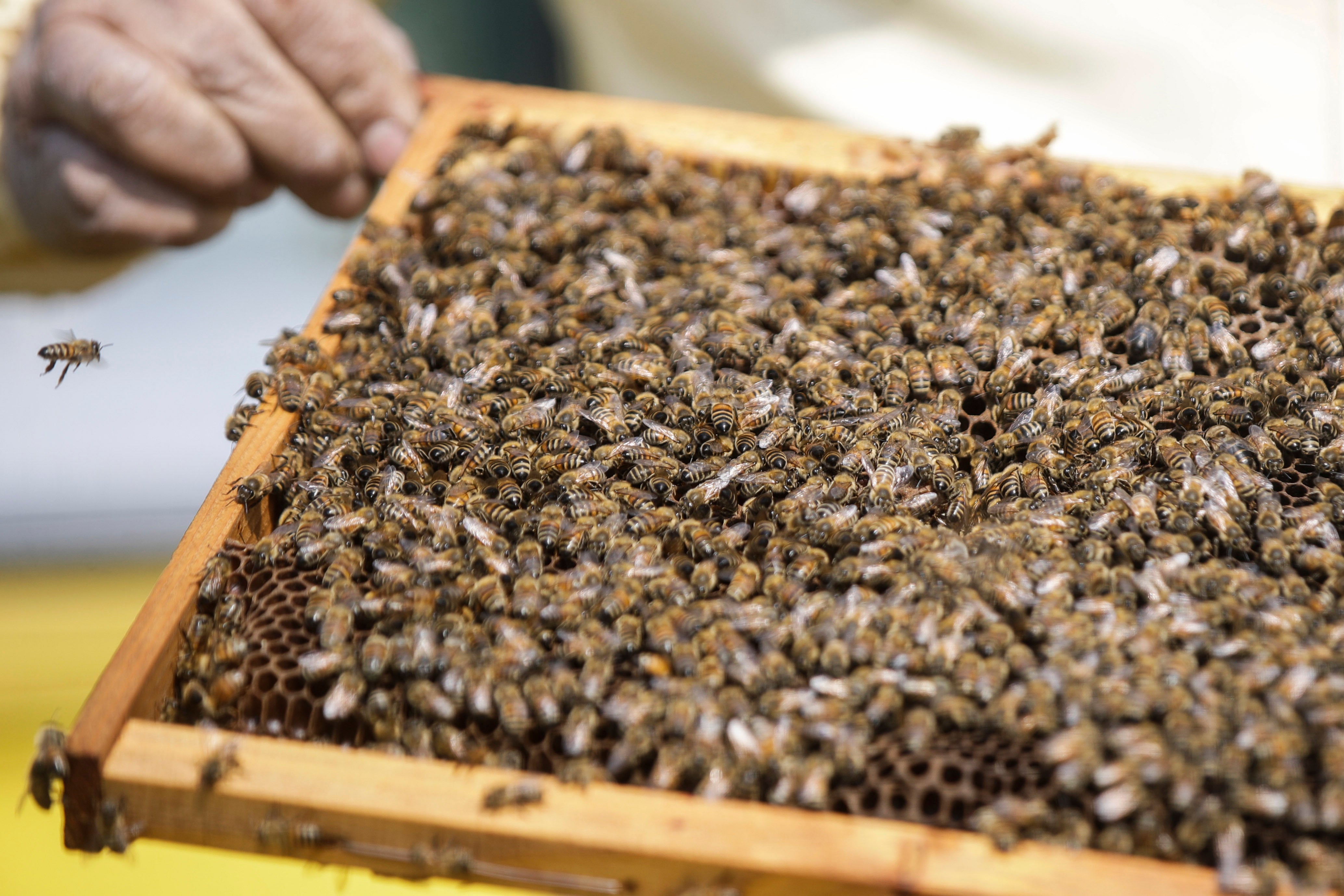Milan gets buzzier with 1 million bees in designer hives
Italy’s financial and fashion capital of Milan has become a little buzzier with a project that mixes biodiversity with art

Your support helps us to tell the story
From reproductive rights to climate change to Big Tech, The Independent is on the ground when the story is developing. Whether it's investigating the financials of Elon Musk's pro-Trump PAC or producing our latest documentary, 'The A Word', which shines a light on the American women fighting for reproductive rights, we know how important it is to parse out the facts from the messaging.
At such a critical moment in US history, we need reporters on the ground. Your donation allows us to keep sending journalists to speak to both sides of the story.
The Independent is trusted by Americans across the entire political spectrum. And unlike many other quality news outlets, we choose not to lock Americans out of our reporting and analysis with paywalls. We believe quality journalism should be available to everyone, paid for by those who can afford it.
Your support makes all the difference.Italy’s financial and fashion capital of Milan got a little buzzier on Thursday with a project that mixes biodiversity with art.
A bee collective introduced 17 new colonies to new designer hives, bringing to 1 million the city’s population of honeybees cultivated by the Urban Beehives project. Creator Claudia Zanfi said the project aims to “create an intersection between artistic language and biodiversity.”
The art is in the form of hives designed by international artists and the biodiversity comes from the bees, which help pollinate plants in the city’s expanding green spaces.
The new hives were introduced to their homes in the Cascina Merlata Park, 20 hectares (50 acres) of new park dedicated last year on land used for the Expo 2015 World’s Fair, which focused on food, food security and nutrition.
The seven-year-old, prize-winning project is aimed at educating the public about the importance of bees to the environment, while boosting their population and producing a sweet treat of honey. It's billed as the biggest urban bee collective in Europe with hives placed in four public parks in the city.
“Urban Beehives is a redevelopment project of urban green through the reintroduction of bees in the city,’’ Zanfi said. “There always have been bees in the city, but creating a public space for them is what is new.”
Starting next week, Zanfi's group Green Island will offer courses and workshops at the park on beekeeping and the bees' critical role in helping maintain a healthy planet.
Two years ago, the Rome-based Food and Agricultural Organization sounded an alarm that declining bee populations pose threat to global food security and nutrition.
"The bees have a fundamental role for our lives, but also for the life of the planet,'' Zanfi said.
__
Read all AP stories about climate change at https://apnews.com/hub/climate.